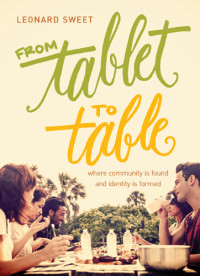Gracious Father,
Our world is in distress. Our world is in crisis. My heart is confused. My heart is broken.
I wrestle with hatred, the need for vengeance, and the desire to turn my back on the those in need with calculated apathy. Yet, I know that You and Your kingdom are real, beautiful and more powerful than anything I can even imagine, so I pray this prayer with faith and hope:
God, I pray for the unfathomable amount of refuges who are desperately fleeing terror and unspeakable horror into the unknown, away from everything and everyone they know. You are not ignorant to this Jesus. In fact, this is part of your incarnational story – a child en route with His teenage parents as refugees in Northern Africa, escaping tyranny and the impending slaughter of innocent children in Israel. May the refugees of our world find Jesus as their Comforter, Saviour and Lord in the midst of their desperation and may the Church of Christ love, welcome and embrace through radical hospitality those who are experiencing the terror of war. May I have the courage and generosity to feed the hungry, give a cup of cold water, and even the shirt off my back to those in need. These are not simply Your poetic words of suggestion but Your profound call for my life. As I love, may others see the love of You, Jesus, in my words and in my deeds.
Change me, Jesus!
God, may you teach me what it truly means to love my enemy. I admit, this has been a foreign and largely theoretical reality for me in North America. It is easy to say, “I love my enemy” in times of security but in the face of fear, it is proving to be extremely difficult. Your call for me to love is beyond my ability. I am not entirely sure how to love my enemy but I know it doesn’t look like apathy, fear, scarcity, prejudice, malice, revenge or hatred.
Change me, Jesus!
God, may you teach me to love my neighbour as the Good Samaritan did – loving my profoundly different neighbour in practical, costly and inconvenient ways. Help me to love those who profess belief in a different god, religion or ideology as I do. You never gave exceptions or exclusions to love! Forgive me for doing so in my actions and inactions to those who are different from me.
Change me, Jesus!
God, help me pastor and parent in the midst of brokenness. Help me lead the church in radical love of the other, different, immigrant, broken, lost, refugee, etc. Help me lead your church with wisdom, mercy, grace and lavish love. Help me parent my children who are learning how to navigate this world as followers of you, Jesus. May they see from my example, someone who loves like You, even in the face of fear.
Change me, Jesus!
God, as I look into the world you profoundly love, watch the news on TV, browse my Facebook feed, or read internet comments, I am reminded that our world isn’t much different than the one you found yourself in two thousand years ago. The idea of loving our enemy, the religiously different, those who hurt us, and those we are afraid of, are the very ideas that took large crowds of Your followers and left You with a small few – it is hard teaching. It is easy to say I will love all when I am not afraid, but when fear grips my heart, help me to love all – even my enemy.
Change me, Jesus!
Change me, Jesus! By the power of the Holy Spirit, change me!
May I have the strength, courage and boldness to storm the gates of hell with the advancing weapons of truth, love, compassion, forgiveness, mercy and grace – as I do, may I have the confidence to know your promise that the gates of hell will not prevail.
In the name of Jesus, Amen.






